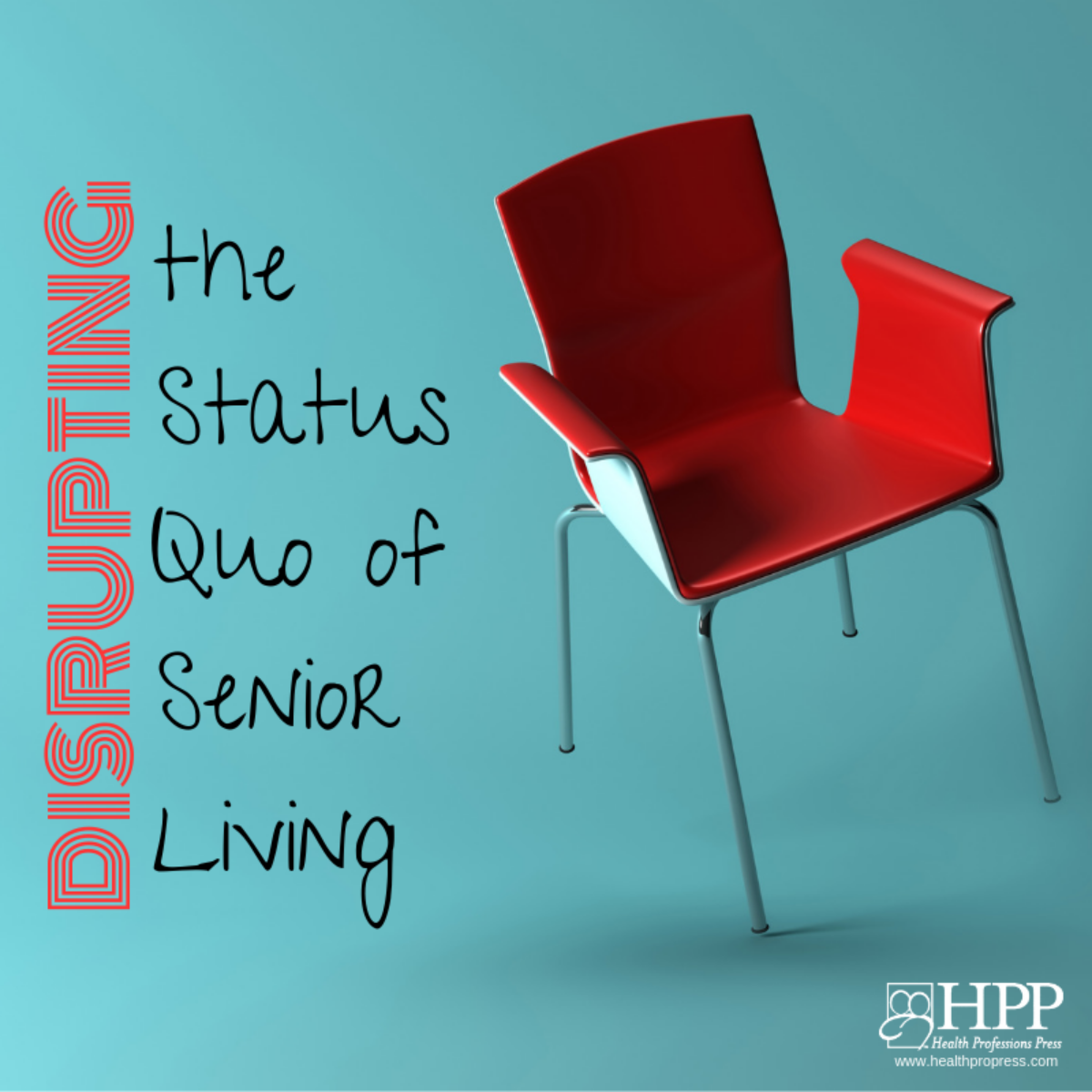
Disrupting the Status Quo of Senior Living
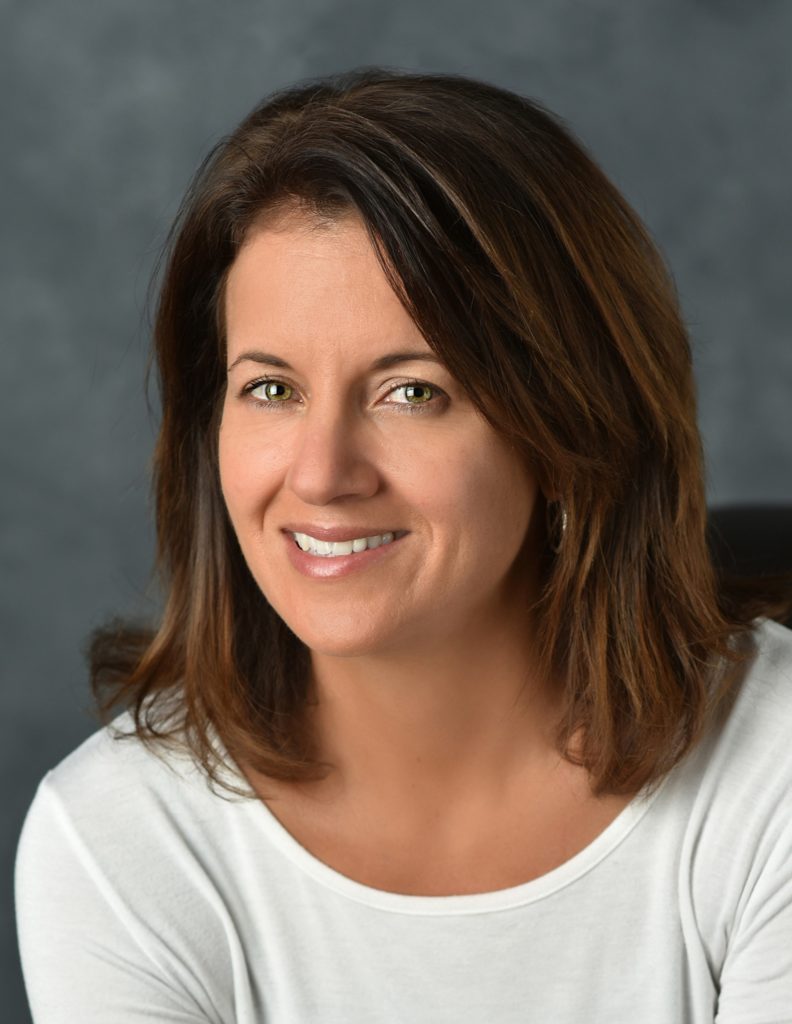
In this interview with President and CEO of The Eden Alternative, Jill Vitale-Aussem discusses senior living, hospitality, ageism, and shifting our perspectives.
In your book, Disrupting the Status Quo of Senior Living: A Mindshift, you discuss how the hospitality model in long-term care can actually be detrimental to residents, which many people don’t realize. Why is this?
First, I need to explain that hospitality has a role to play in our field. We can learn a lot from hotels and resorts about welcoming guests and visitors. But so many of us use it as the focal point for everything. And in some organizations, hospitality has become the identity of senior living—resorts where older people can sit back, never have to lift a finger, and have everything done for them.
This approach concerns me for a few reasons. Hotels and resorts don’t exist to bring people together or have guests get to know the person in the room next to them, and doesn’t teach us how to create a healthy inclusive community culture. Second, doing for people constantly with an overzealous customer service approach can actually undermine self-sufficiency, independence, and purpose. Finally, when we focus on hospitality and service, we can turn older people into helpless consumers rather than engaged citizens that have a role in the success of the community. This perpetuates the myth of elderhood as a time of life where people are nothing more than recipients of services with nothing of value to offer to our communities and society.
What made you realize that the hospitality model wasn’t working and it was time for a “mindshift?” Was there one experience that really affected you or was it a culmination of things?
I have a master’s degree in hospitality management and used the hospitality approach in my work as a senior living executive director for many years. I hate to admit it, but I actually used to say that senior living is just like a hotel where you never check out. It was only when I started learning about the elements of health and well-being and the principles of person-directed support that I started to think differently and contemplate the ways that the hospitality model clashes with creating cultures of whole person well-being. It was really a culmination of things. Once I opened my mind to the possibility that my approach was potentially flawed I started seeing signs of the problem everywhere.
The term “culture change” turns some people off. In your own words, what is it and why do you think there are so many misconceptions?
I think the term has been overused and misused. It has been used to describe very surface level changes—like getting rid of scrubs or adopting a community dog or having open dining times. Even building a new physical structure, while time consuming and very expensive, is nothing more than a surface level intervention. Here’s the problem: When you only do surface level work, you don’t experience real or sustainable transformation. It would be like getting a new computer without investing in an updated operating system or software. We know that would be a foolish mistake, but we do it all the time in our field! We try to make surface level changes and then say “culture change doesn’t work” when our efforts fail to drive sustainable transformation.
In my book I talk about the theories of technical and adaptive work. Culture change is adaptive work. It’s messy, time consuming, and it’s really hard (which is why so few organizations undertake it). But it’s the only way to create a new reality for older people and those who support them. When organizations go deep with this process we see incredible outcomes in everything from quality of life to team member retention and financial outcomes.
In your book, you also write that “sense of community is essential to well-being.” Why is this?
Somehow, the measure of success as we age has come down to being independent and not needing anyone else. But our survival has always been dependent on being part of a group. Inclusion is such an important part of survival that we feel the pain of social rejection in the same part of the brain that registers physical pain! The impact of social isolation is devastating. Loneliness is now being called an epidemic that is as harmful to our health as smoking or obesity. And here’s what’s really important— you can live with other people and still be lonely. Too often in senior living settings, there are unhealthy cultures of cliques, bullying, and segregation that leads to isolation. In the book I talk about how we employed community-building principles to create a sense of community and build inclusivity and belonging.
The “-isms” are a hot-button topic right now (such as racism, sexism, etc.). Do you think it’s important that people start paying equal attention to ableism and ageism?
Ageism is truly one of the last socially acceptable prejudices in our society, but it’s wreaking havoc on each of us and our society. The pervasive negative views of aging (and age-related ableism) are at the root of the challenges we face in senior living. And research suggests that changing the way our society views aging can significantly reduce healthcare costs and have a major impact on longevity, health, and quality of life. Fighting ageism is the most important work we can do.
What advice would you give to someone looking to get into the field (or unsure if it is right for them)?
When I talk with people who are getting into the field, I always recommend that they choose their employer very, very carefully. If you’re stuck in a company that’s focused on maintaining the status quo and views the people that live and work in their communities only as means of generating profit, you’re setting yourself up for burnout and frustration. Look for the innovators, the learning organizations that are pushing back against the status quo. The ones with healthy cultures that promote the potential and value of the people who live and work in their communities. Culture is everything and healthy cultures lead to personal and organizational success.
What is the one thing you hope readers will take away from this book?
That it’s not about the new building. It’s not about surface level fixes. It’s about changing what we think and what we believe and the way we operate and function in our communities. Real change will only come from deep cultural transformation. And that change starts with each of us challenging and questioning our own beliefs and behaviors.
Read the book!
Disrupting the Status Quo of Senior Living
A Mindshift
By Jill Vitale-Aussem, MMH, LNHA
Copyright © July 2019 by Health Professions Press, Inc. All rights reserved.
Melding aging research, ideas from some of the most influential thinkers in the aging services field, and the author’s own experiences transforming senior living cultures, this book challenges readers to examine their own biases, question long-held practices, and work toward creating vibrant cultures of possibility and growth.

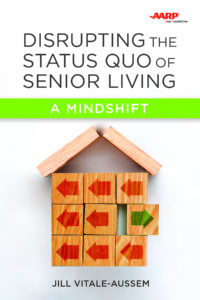

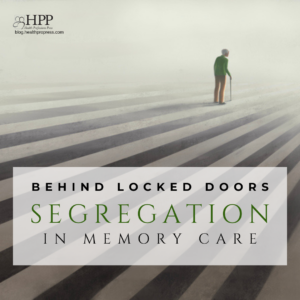
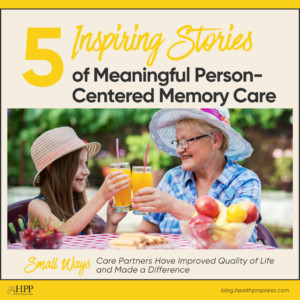
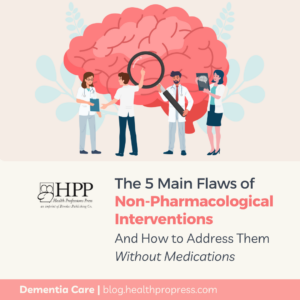
comments
James S Aussem says
This is a wonderful tool for the future of our planet. The hope is that those in a position to effect change will absorb the lessons in the book and implement change.
Add comment
replies
Add comment